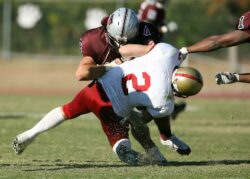Crash and Panic: Navigating the Aftermath of Hitting a Parked Car
In the article 'Crash and Panic: Navigating the Aftermath of Hitting a Parked Car', we explore the correct actions to take after such an incident. The guide covers immediate steps post-accident, legal implications, importance of contacting the owner, reporting to authorities, and managing insurance matters. It aims to equip you with knowledge to handle this scenario responsibly, minimizing potential legal and financial repercussions.

Key Takeaways
- Stop your car and ensure your safety
- Leave a note with your contact information and report the accident to the police
- Take photos and videos of the scene, and gather witness information
- Notify your insurance company and consider consulting with a car accident attorney
Understanding the Incident: What Happens When You Hit a Parked Car
When you inadvertently hit a parked car, it initiates a series of legal and insurance-related processes, which demand immediate attention and careful understanding to avoid potential punitive consequences. The first crucial steps after an accident involve securing the scene, notifying the car owner if possible, and reporting the incident to the police. Photos of the accident scene can be invaluable evidence, and any available witnesses can corroborate your account. Legal consequences may range from fines for hit-and-run offenses to increased insurance premiums. It's also advisable to consult with a legal professional to explore potential defenses or mitigation strategies. Understanding these steps and potential legal consequences can help you navigate this stressful situation with greater confidence and clarity.
First Actions: What to Do Immediately After the Accident
One must promptly secure the accident scene, ensuring personal safety first, before proceeding with other necessary steps such as identifying and documenting damages, and contacting relevant authorities. Understanding liability is crucial: it's advisable not to admit fault at the scene, as this could complicate the process of seeking compensation. It's essential to document the incident thoroughly, gathering evidence through photographs or videos, and noting down any potential witnesses. Information exchange with the vehicle owner, if available, is the next step. If not, leaving your contact details is the right course of action. Immediately reporting the accident to your insurance provider and seeking legal advice are also crucial steps. Remember, your actions post-accident can significantly influence your liability and compensation outcomes.
Legal Implications: The Consequences of Fleeing the Scene
Within the context of a vehicular accident, particularly after striking a parked car, the legal repercussions can be severe if one chooses to flee the scene, and these consequences can intensify over time, carrying potentially long-term implications. These consequences of hit and run may include criminal charges, fines, and potential imprisonment, which may further be compounded by civil liability. Stricter penalties typically apply for repeat offenders. These legal ramifications underscore the importance of not only adhering to ethical and moral obligations but also legal ones. In light of this, seeking legal representation is paramount. Legal counsel can aid in understanding and navigating the complex landscape of potential consequences, defending one's rights, and negotiating possible settlements or penalties. It can also provide advice on dealing with insurance implications.
Contacting the Owner: The Importance of Leaving a Note
Although it may seem inconvenient or even uncomfortable in the moment, leaving a note with your contact information after accidentally hitting a parked car is crucial, as it not only fulfills a legal obligation but also demonstrates respect and responsibility towards the other party's property. Understanding liability when hitting a parked car is critical, as it can have legal repercussions. The importance of communication is underscored in such scenarios, with effective ways to contact the owner being a key component. A note, while traditional, remains one of the most effective communication methods. It provides an immediate, tangible record of your attempts to accept responsibility, and showcases your willingness to rectify the situation, which can significantly influence the legal and personal outcomes of the incident.
Reporting to Authorities: Why Notify the Police
Reporting to the police after hitting a parked car is not only a legal requirement in many jurisdictions, but it also provides an official record of the incident, which can be crucial for insurance purposes and any subsequent legal proceedings. The benefits of police involvement extend beyond mere compliance with the law. It ensures an objective account of the incident, eliminating reliance on memory or biased recollections. This impartiality is essential when determining liability and processing insurance claims. Furthermore, police can secure witness statements, maintain the accident scene, and provide immediate assistance if required. The importance of accurate documentation, facilitated by police, cannot be overstated. It serves as a vital tool in upholding fairness, transparency, and accountability in unfortunate vehicular incidents.
Documentation: The Role of Photos and Videos in Your Case
Frequently, the inclusion of clear photos and videos in your documentation can greatly bolster your case, providing irrefutable evidence of the accident's circumstances and impact. Their role in your case is pivotal to comprehensively capture the scene, displaying details that written accounts may overlook. Photos and videos can reveal the extent of damage, layout of the area, weather conditions, and even time of the incident. Furthermore, they validate your narrative and can be crucial in countering any conflicting claims. This importance of evidence collection cannot be overstated. In a world where facts can be contested, visual documentation serves as a robust, unambiguous record. Therefore, when involved in accidents, prioritizing the collection of such evidence is of paramount importance.
Witness Accounts: Their Potential Role in Your Defense
Collecting witness accounts plays a critical role in corroborating your version of events, and it can provide invaluable support in your defense. The potential role of witnesses in your defense should not be underestimated; their testimonies can tip the scales in your favor. These firsthand observers may offer evidence that refutes contrary claims or corroborates your narrative.
The impact of witness accounts on your case can be significant. Their testimonies contribute to the objective understanding of the event, potentially strengthening your defense and influencing the case's direction. Their detailed recollections can help paint a comprehensive picture of the incident, directly influencing the decision-making process. Therefore, a proactive approach in securing witness testimonies should be a top priority in any legal defense strategy.
Dealing With Insurance: Reporting the Incident and Potential Rate Increases
After hitting a parked car, notifying your insurance company is an essential step, but it may lead to potential rate increases depending on the severity of the accident. This eventuality often triggers a negotiation process, where settlements are discussed to compensate for the damages. It's crucial to understand your insurance policy, including what it covers and the possible implications of the accident on your rates.
In this complex scenario, seeking legal advice can be beneficial. A legal professional can provide guidance on negotiating settlements with your insurance company, ensuring your interests are adequately protected. They can also help you navigate the potential rate increases and understand your rights and responsibilities. In conclusion, while the aftermath of such an incident can be daunting, informed decisions can mitigate its impact.
Legal Advice: When to Consult a Car Accident Attorney
One should consider consulting a car accident attorney when faced with complex negotiations with insurance companies after hitting a parked car, as they can provide valuable legal advice and representation. It is crucial to understand when to hire an attorney, which is ideally as soon as possible after the incident. This timely intervention can prevent potential pitfalls in the negotiation process with the insurance company. An attorney can adeptly navigate the legal nuances, ensuring that you receive the most equitable settlement. They can also provide guidance on how to negotiate with insurance companies effectively, protecting your rights and interests. Thus, hiring an attorney following a car accident incident can be a strategic move to safeguard oneself against undue financial burdens and legal complications.
Returning to the Scene: Steps to Take If You Left in Panic
In the event of a panic-induced departure from an accident scene, it is essential to comprehend the appropriate steps to rectify the situation and mitigate potential legal consequences. A prompt return to the scene, if feasible, is valuable for several reasons: it may reduce legal implications and assist in seeking compensation. Cooperation with law enforcement, including providing full disclosure of the incident, is fundamental. Consulting legal counsel may prove beneficial, particularly in interpreting complex legalities surrounding hit-and-run incidents and potential repercussions. In the pursuit of compensation, legal advice may guide negotiations with insurance companies, ensuring fair treatment. Understanding these steps and the potential legal consequences can aid in navigating the aftermath of such an unfortunate event.
The Role of Your Insurance: Understanding Your Coverage
Comprehending the extent of your insurance coverage is crucial when dealing with the financial implications of hitting a parked car. Understanding policy coverage becomes a primary concern as it determines the financial responsibility you bear. Key elements include deductibles, liability coverage, and collision coverage. Equally important is exploring insurance options to potentially mitigate any rise in premiums. Some policies may offer accident forgiveness or safe-driving discounts. In cases of significant rate hikes, it may be beneficial to shop around for other insurance providers. Consulting with an insurance professional could offer clarity and guidance in these circumstances. Remember, each situation is unique, and your insurance coverage plays a pivotal role in navigating the aftermath of such incidents.
Raising Insurance Rates: What to Do If Your Premium Increases
Although the aftermath of hitting a parked car can be overwhelming, it is essential to understand your options if your insurance premium increases as a result. An increase in your insurance rate is a common consequence of such an incident, given the risk assessment carried out by insurers. Dealing with legal consequences may also arise, depending on the severity of the damage. It is crucial to consult with an attorney, as they can provide guidance on your rights and responsibilities, as well as potential options for seeking compensation. Remember, each case is unique and the specific circumstances will significantly influence the outcome. Always prioritize understanding your insurance policy and exploring all available avenues to mitigate the impact of such an increase in your premium.
Protecting Your Rights: the Role of an Attorney in Negotiations With Insurance Companies
Navigating the complex terrain of insurance negotiations demands both a thorough understanding of your rights and the strategic counsel of an experienced attorney, who can serve as an advocate, ensuring you receive the fair treatment and compensation you deserve. After an accident, such as hitting a parked car, insurance companies often aim for prompt, minimal reimbursement, thus negotiating settlements can be challenging. An attorney's role becomes pivotal in protecting interests and ensuring that the settlement reflects the full extent of the damages. Furthermore, they can help you comprehend intricate insurance policies, combat any attempts of undervaluation, and keep the insurance company accountable. With an attorney's assistance, you can mitigate the stress and uncertainties of the negotiation process, while safeguarding your rights and financial well-being.
Frequently Asked Questions
What Steps Should I Take if I Was Not at Fault for Hitting the Parked Car?"
If you believe you were not at fault after hitting a parked car, gather evidence to support your claim. This includes obtaining witness accounts and securing surveillance footage from nearby cameras, if available. Inform your insurance company about the incident and provide them with the collected evidence. It's also advisable to report the incident to the police, providing them with the same evidence. Lastly, consider consulting with a car accident attorney to help protect your interests.
What Can I Expect if the Owner of the Parked Car I Hit Is Uninsured?"
If the owner of the parked car you hit is uninsured, you may face complex legal and financial issues. Your own insurance may have to cover the damages under an uninsured motorist provision. Potential legal consequences can arise, especially if the uninsured party seeks compensation for damages. It's advisable to consult with a legal professional to understand your rights and responsibilities in such a situation. Navigating uninsured compensation claims requires professional guidance for the best outcome.
How Long After the Accident Can I Still Report It to My Insurance Company?"
The deadline for reporting an accident to your insurance company varies; however, it's advisable to do so as soon as possible. Delaying the report could lead to complications such as policy implications or claim denial. Review your insurance policy for specific timeframes. Should you exceed the stipulated timeline, your insurer may question the validity of your claim, potentially impacting your coverage and rates. Always consult with an insurance professional to understand your policy's deadlines and implications.
What Is the Process for Determining Who Is at Fault When a Parked Car Is Hit?"
The process for determining fault when a parked car is hit involves a comprehensive Fault Assessment. This includes an examination of the accident scene, witness statements if available, and a thorough Damage Evaluation of both vehicles. Typically, the driver of the moving vehicle is found at fault. However, extenuating circumstances may influence this determination. It's crucial to involve law enforcement and insurance providers in this process to ensure an objective and fair assessment.
What Are the Potential Mental or Emotional Impacts I Might Experience After Hitting a Parked Car and How Can I Cope With Them?"
After hitting a parked car, you may experience guilt, anxiety, and stress. Emotional resilience is vital in such situations. Acknowledge your feelings, but don't let them control your actions. Guilt management strategies, such as accepting responsibility and making amends, can be helpful. Discussing the incident with a professional counselor may provide emotional support. It's important not to isolate yourself, but share your feelings with trusted individuals who can provide perspective and reassurance.
Conclusion
In conclusion, managing the aftermath of hitting a parked car can be complex, necessitating a clear understanding of immediate actions, legal considerations, and insurance implications. Leaving the scene can lead to severe consequences, underlining the importance of responsible behavior. Furthermore, potential insurance rate increases and the role of legal counsel in protecting one's rights underscore the multifaceted nature of such incidents. Therefore, a responsible approach can minimize legal and financial repercussions, fulfilling both legal obligations and moral responsibilities.

This post has been generated by AI and was not reviewed by editors. This is Not legal advice. Please consult with an attorney.




